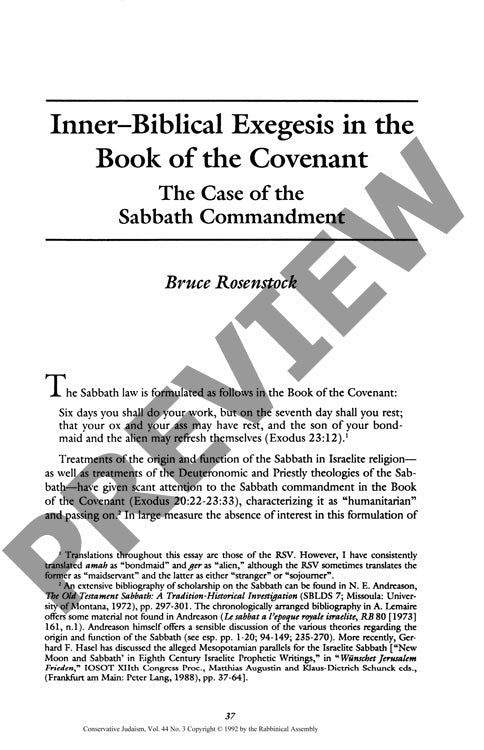Inter Biblical Exergesis in the Book Of
Couldn't load pickup availability
Abstract This study examines the Sabbath commandment in the Book of the Covenant (Exodus 23:12) through the lens of inner-biblical exegesis, arguing that this seemingly simple humanitarian law contains sophisticated theological commentary on Israel's patriarchal history. The research employs close textual analysis and literary criticism to demonstrate how the commandment functions within what the author terms a "theology of compassionate hearkening" that permeates the Book of the Covenant's social legislation. The methodology focuses on linguistic analysis, particularly examining the rare verb *yinafesh* and the anomalous phrase "son of your bondmaid" in relation to other biblical texts. The study reveals that this phrase, together with the reference to "the alien," constitutes a deliberate wordplay alluding to the Genesis narrative of Hagar and Ishmael's expulsion from Abraham's household. This inner-biblical exegesis connects God's compassionate response to the oppressed throughout biblical history, from Hagar's affliction to Israel's enslavement in Egypt. The findings suggest that the Sabbath commandment represents more than humanitarian legislation; it functions as Israel's acknowledgment of the tragic dimensions of salvation history and serves as restitution for innocent victims like Hagar. The research concludes that through this sophisticated literary technique, the author/redactor of the Book of the Covenant establishes the Sabbath as the culmination of God's compassionate hearkening and positions Israel as responsible for continuing this divine compassion toward society's most vulnerable members.

More Information
-
Physical Description
-
Publication Information
Published
ISBN
-
Publication Credits
Bruce Rosenstock

